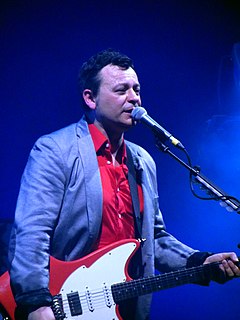A Quote by Brandon Sanderson
When I write my books, actually I'm known for very logical rule-based magic systems. I write with one foot in fantasy and one foot in science fiction.
Related Quotes
I find it interesting that authors of fantasy and science fiction novels are rarely asked if their books are based on their personal experiences, because all writing is based on personal experience. I may not have gone on an epic quest through a haunted forest, but the feelings in my books are often based on feelings I've had. Real-life events, in fantasy and science fiction, can take on metaphorical significance that they can't in a so-called realistic novel.
Science fiction is fantasy about issues of science. Science fiction is a subset of fantasy. Fantasy predated it by several millennia. The '30s to the '50s were the golden age of science fiction - this was because, to a large degree, it was at this point that technology and science had exposed its potential without revealing the limitations.
I need to have one foot inside and one foot outside a culture to be able to write about it. For example, I couldn't write about the gay culture if I were wholly inside or outside of it. Finding that distance is always interesting. I jokingly say that when I'm in America, I write about Beirut, and when I'm in Beirut, I write about America. A lot of my friends in Beirut think I'm more American than Lebanese. Here, my friends think of me more as Lebanese.
I set myself a rule before I actually write a tune to the lyrics, and the rule is that I've got to take the lyrics on to a level of understanding before I can actually write music to them. What I'm doing is interpretation. If I don't write the lyrics, therefore I must interpret them to the best of my ability. So my rule is that I must understand it, but I don't necessarily have to accept.




































